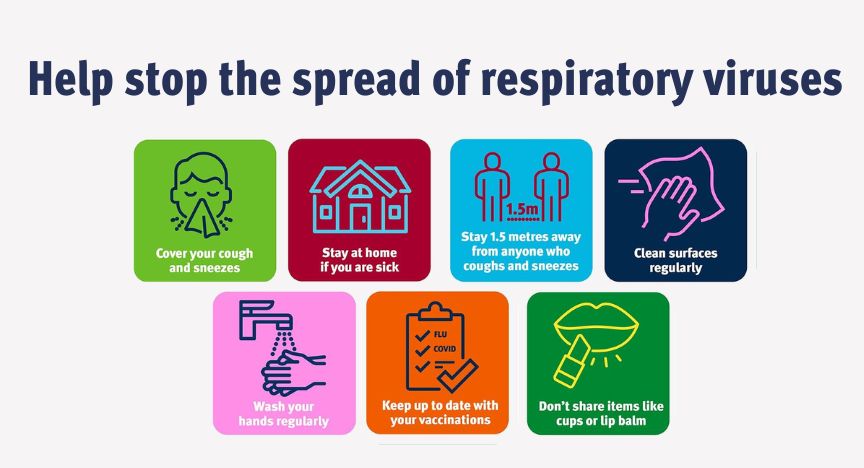
Cases of influenza are continuing to be recorded across the Central West region.
Central Queensland Public Health Unit Director Dr Gulam Khandaker said 93 laboratory- confirmed cases had been recorded so far this year – to 16 July.
“We’ve had an outbreak at Boulia and cases right across the region,’’ he said. “We’ve also had six people hospitalised with flu to date across our region.
“Being vaccinated every year is the best way to protect yourself and your family from the flu.
“With the seasonal flu vaccine now readily available, everyone should take the opportunity to be vaccinated.
“It’s a safe vaccine for children and is offered annually to everyone older than six months of
age.’’
Dr Khandaker said the vaccine was free every year for people who were most at risk, including:
* children aged 6 months to less than 5 years,
* all Aboriginal and Torres Strait Islander people,
* people aged 65 years and older,
* people who are pregnant,
* and people who have certain medical conditions.
“However, this year, the State Government has extended the free flu vaccination program to all
Queenslanders from 22 July to 31 August at GPs and pharmacies across the state,’’ he said.
“The free vaccines also are available through primary health centres in the Central West. “I
encourage all Central West residents to take advantage of this free program.
“But as well as vaccination, good hygiene also is very important in preventing flu, just as it was
during the COVID–19 pandemic.
“The best way to prevent the spread of flu is to wash your hands, cover your coughs, put tissues
straight in the bin and stay away from other people if you or they are sick.
“Practising social distancing by staying at least 1.5 metres away – as recommended during the
recent COVID-19 pandemic – will mean coughs and sneezes don’t reach another person’s face.
“Wearing a mask also is highly recommended to avoid transmitting the flu to others, or to protect yourself from people around you who might have the flu.
“If you get the flu, you should stay home and rest and drink plenty of fluids until symptoms have resolved, which is usually 5-7 days.
“All these measures can help prevent the spread of flu.
“If you or your family member is getting sicker, they may have fast or difficult breathing, have
chest pains, be sleepy or say they are getting worse.
“If this happens, they should go to their doctor or clinic, as you may be suitable to receive anti-
viral treatment.
“But you should seek care early, especially if you have other chronic conditions, as antivirals are
only effective if started early – within the first couple of days of symptoms.’’
Dr Khandaker said the flu could be a serious illness, especially for high-risk people like young
children, old people, pregnant women, and people with some illnesses – like breathing problems or diabetes.
“While healthy adults usually recover quite well, influenza infection can lead to other medical
complications such as pneumonia,’’ he said.
As well as flu, cases of Respiratory Syncytial Virus (RSV) also are being reported across the
health service region, with 14 cases to date, compared with 18 cases for the whole of 2022.
Dr Khandaker said RSV was a common virus which generally caused minor illness but could be severe in individuals with weakened immune systems or young children.
“A single RSV infection does not result in long-lasting protective immunity, and symptomatic
illness tends to occur repetitively in children,’’ he said.
“Symptoms may include a runny nose, cough, fever, sore throat, and headache.
“While there is no vaccine for RSV, we encourage people to prevent the spread by practising good
hand hygiene and respiratory etiquette – just like for the flu and COVID-19.’’
Dr Khandaker said everyone also should always ensure they were up to date with all the COVID-19 vaccination doses recommended for their age and health needs.
The health service has recorded 133 cases of COVID-19 so far this year, compared with 2232 cases for the same year to date period last year.
More information about recommended COVID-19 doses is available here: https://www.health.gov.au/our-work/covid-19-vaccines/getting-your-vaccination/booster-doses